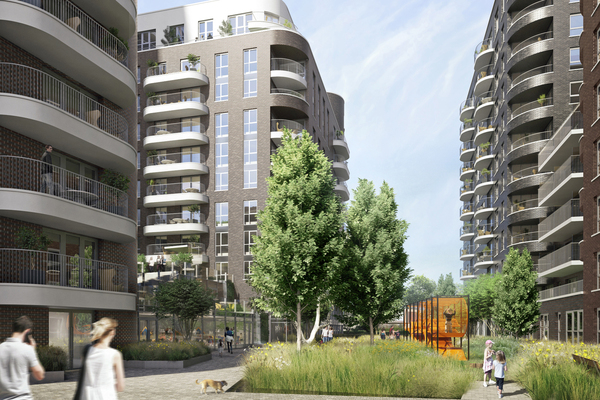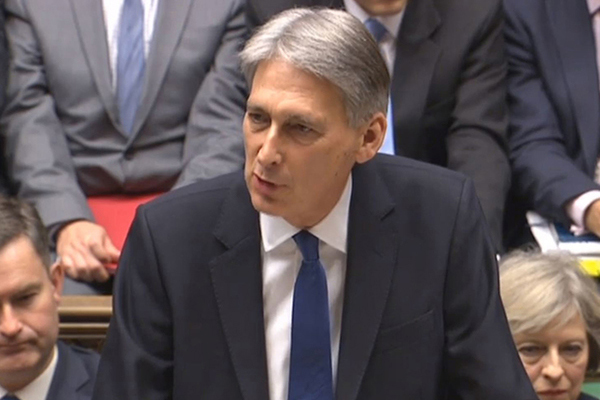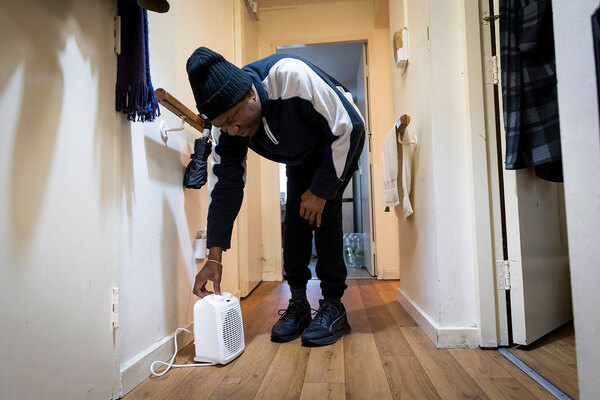You are viewing 1 of your 1 free articles
 Jules Birch
Jules BirchThe Spring Statement: what you may have missed
The documents accompanying the Spring Statement contained some important housing announcements that may have been overlooked, explains Jules Birch
With Brexit dominating everything, the Spring Statement seems at first glance to be just as underwhelming as the chancellor hoped when he moved the main Budget event of the year to the autumn.
The most eye-catching details from usual array of announcements and re-announcements on housing includes a £3bn Affordable Housing Guarantee Scheme to support 30,000 homes and a proposal to ban fossil fuel heating systems in new homes from 2025.
But to add to the sense of Brexit drift, the first reintroduces a coalition scheme that lowered borrowing costs for housing associations but was abolished in 2015, while the second does something to address climate change but will be arriving nine years later than the zero-carbon homes that were scrapped by the coalition.
“Philip Hammond milked the government’s achievements in boosting housing completions and the number of first-time buyers”
As Inside Housing reports, the chancellor also announced £717m from the Housing Infrastructure Fund to unlock homes in London, Cheshire and the Oxford-Cambridge Arc plus a series of new Growth Deals.
In the speech itself, Philip Hammond milked the government’s achievements in boosting housing completions and the number of first-time buyers (more than 50% of buyers “for the first time in a generation”, he boasted).
And an accompanying written statement reiterates the government’s target “to raise housing supply by the end of this parliament to its highest level since 1970 and put us on track to reach 300,000 a year on average”.
The possibility that the end of this parliament could arrive some time next week rather than 2022 put this and a Spring Statement delivered on the assumption that there will be a Brexit deal into perspective.
Improved borrowing figures gave Mr Hammond the chance to follow through on the government’s promise to end austerity if he chose – but with the benefit freeze continuing for another 12 months, he did not choose.
However, I used “seems” in the introduction for a reason, and as usual the background documents accompanying the main event still include some important details that were not in the Spring Statement itself.
A consultation on infrastructure finance is billed as a search for ways to replace private finance initiatives but it also asks if the government should consider alternative forms of infrastructure finance support for housing associations in the context of the end of European Investment Bank funding.
And a written statement from housing secretary James Brokenshire includes three big announcements on housing and planning. Here is some quick analysis:
Letwin Review – the statement also gives the government’s response to the review of build-out rates on large sites conducted by Sir Oliver Letwin.
Sir Oliver’s final report was delivered alongside the Autumn Budget and argued that the key to building quicker lies in diversifying the types and tenure of homes that get built.
He recommended new planning rules and incentives to get developers to diversify plus a greater role for local authorities via new planning powers and guidance to allow capture more land value uplift.
However, Mr Brokenshire’s statement says that the revised National Planning Policy Framework “has already embedded a requirement for a greater mix of housing”.
He also notes that “many in the housebuilding industry are sceptical” of the approach to land value uplift but says “I agree with the principle that the costs of increased housing diversification should be funded through reductions in residual land values”.
But then he goes on to say (my emphasis added) that the government is “committed to improving the effectiveness of ‘existing’ mechanisms of land value capture” and focused on “evolving the ‘existing’ system of developer contributions”.
Much of this is a matter of interpretation but it sounds as though Sir Oliver’s analysis has had an impact on the government’s thinking but not enough of one to change the current approach much.
Future Homes Standard – this was trailed in the reference in the speech to that ban on fossil fuel heating, but a written statement from Mr Brokenshire says there will be a consultation this year on what sounds like a much more wide-ranging standard to apply from 2025 and a vehicle for the previous concerns he has expressed about new-build quality.
“The fact that the government is consulting on a national standard for new homes shows how much has changed since the days of Eric Pickles and the obsession with red tape”
If I’m right, expect lobbying from house builders to be just as extensive as it was when they persuaded the government to abandon the Labour commitment to make all new homes zero carbon from 2016.
However, the fact that the government is consulting on a national standard for new homes shows how much has changed since the days of Eric Pickles and the obsession with red tape.
Permitted development – there will be a review of the existing system allowing office and other buildings to be converted to residential use with a focus on “the quality of homes delivered”. This looks like a reference to issues I’ve raised in previous blogs.
The Autumn Budget had proposed a major extension of the permitted development system for existing buildings with the potential to raise even more concerns about size, quality and the impact on affordable housing.
A relaxation for upwards extensions is now set to go ahead via regulations due in the Autumn but Mr Brokenshire’s statement says the government “will continue to consider” application of permitted development to the demolition and replacement of existing buildings.
Finally, the Budget report from the independent Office for Budget Responsibility (OBR) includes a reminder of just how quickly government priorities can change.
The extension of the Right to Buy to housing association tenants was a flagship manifesto pledge in 2015 but has been left high and dry by the collapse of the back of a fag packet plans for financing it.
The OBR now includes it as a policy risk given the costs of discounts would fall on the Treasury and notes that despite the local pilot scheme work at a national level is “ongoing”.
So as MPs return to considering the deal, no deal and the Kit Malthouse compromise, there is still plenty happening – and not happening – in the housing minister’s day job.
Jules Birch, award-winning blogger
More on the Spring Statement 2019
The Spring Statement: what you may have missed
The documents accompanying the Spring Statement contained some important housing announcements that may have been overlooked, explains Jules Birch
Government announces £3bn affordable housing guarantees scheme
Chancellor Philip Hammond has announced that the government will create a £3bn Affordable Homes Guarantees Scheme aimed at supporting the delivery of about 30,000 affordable homes.
Guarantees welcome but more grant needed, sector says
Sector leaders have welcomed the announcement that the Affordable Homes Guarantees Scheme will be restarted – but warned that the government must provide more grant
Chancellor unveils infrastructure funding to boost housing in Spring Statement
The government has announced that £717m will be made available from the £5.5bn Housing Infrastructure Fund to unlock up to 37,000 homes











